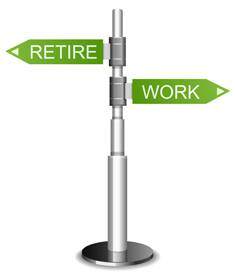Years ago, you started planning for it. You named someone to be your successor and started training that person to take the helm.

More than likely, you’ve encountered a few bumps along the way – a few times when you have wondered whether you made the right choice, whether your successor really has what it takes.
And now, the time has come. Your successor is ready to take over, and it’s time for you to step aside. For some of you, this is a day of celebration.
For others, it’s a day of emotional turmoil. You may not be truly ready to hand over the keys. But the plan has been completed, and the time has come.
It is important to the successor’s future success that you act according to the plan that was laid out years ago. The company’s employees, customers, vendors and associates need to see that you have confidence in your successor. They will take their cues from you. If you waver at this stage, they may do the same.
So, how do you step aside gracefully? Here are a few things to consider:
1. Is there an appropriate role for you within the company now that you are no longer at the helm?
Some of you will not want this. You’ve worked hard, and you’re ready for another career or an extended vacation. Others of you may want to be involved. If so, it may be possible for you to help with such tasks as special projects.
However, it may be necessary for you to step away completely for a period of time to give the successor a chance to be seen as the one and only leader. Once that leadership has been well established, your skills and experience may be welcomed again.
2. Are there ways you can stay involved in the industry without being involved specifically in the company?
Many industries have boards and committees that help provide direction, leadership, training and public relations. Perhaps with your involvement in these types of ventures, your years of experience can benefit many more people.
3. Could business people outside your industry benefit from your years of experience?
The Service Corp of Retired Executives (SCORE) is one agency that relies on the brain trust of retired executives to help up-and-coming businesses. SCORE has branches across the country. Again, this type of participation is a way for you to continue to be involved in business without having to be directly involved in your former company.
4. Are there causes outside the business world that you find interesting?
Business skills are needed in charitable and social organizations all over the world. It is often possible to combine good works with interesting travels. Giving back in this way can be an excellent retirement plan.
The key to stepping aside gracefully, as you might have deduced, is to have something to step aside to. When you’ve gone to work nearly every day of your life for decades, suddenly having nowhere to work is quite a shock. If you allow yourself to get bored, you may find yourself nudging around in the old business – which may not be the best for anyone concerned.
You’ll find stepping aside much easier when you have a plan. Whether you’re excited about your impending departure or dreading it, think about what you’ll do once you’ve turned over the keys.
Make some plans. Set some goals – even if those goals involve how many fish you want to catch this year or how many times you plan to visit the grandchildren.



